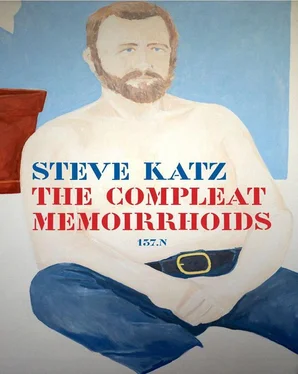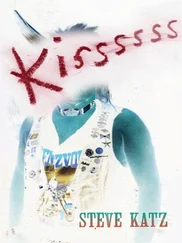II
We get a call from the Pierre, South Dakota police, that Leonard Crow-Dog is in jail, and has given our name as someone who would go his bail. Leonard is Henry’s son, a well-known shaman in his own right, famous for selling his powers and skills around the country in shows for the white man. He is bringing Henry, and intends to camp with his wife and kids near the set, and feed them all at our mess hall. This speaks both to the depth of their poverty and to Leonard’s freeloading skills. He has been busted for driving an “Indian car” off the reservation. Leonard doesn’t have a license. The car was stopped because it has no tail light covers. It is almost midnight. Henry sits in the jailhouse with Leonard’s wife and kids. Both kids are asleep, their heads in their mother’s lap. Henry doesn’t stir when we walk in, stares straight ahead, hands folded in his lap. We arrange the bail, and Leo loads Leonard and the family into the company van. My assignment is to drive the Indian car to the set with Henry Crow-Dog. At an all night gas station 7-11 I buy a couple of cans of car wax, with transparent red caps, and tape them over the taillights. The car has no rear view mirror and only one cracked side mirror. The steering doesn’t engage until a few revolutions of the wheel. The brakes want at least thirty seconds of pumping before they engage. It’s 2 A.M now. With Henry Crow-Dog riding shotgun I pull out onto the road for the Cheyenne River reservation.
Henry stares straight ahead, not at the road, but into the darkness barely scooped out by the one dim headlight. Every time I look across the seat at his profile I feel an odd thrill, as if I am riding with an avatar lifted straight off the buffalo nickel. The first time he chants I almost fly out the window. It is very dark in South Dakota. There is no traffic. It’s just Crow-Dog and me. He chants every few minutes, the songs somehow reassuring. Between Pierre and the Cheyenne River rez there is one turn in the road. I miss it, don’t start turning the wheel soon enough. We bounce off across the prairie. Luckily there is no tree, no rock in the way. The car rattles to a stop. Indian car survives. I look at Henry. He gazes straight ahead, laughing. “Ha ha ha ha ha! If we make movie we make good movie.”
III
After a week Leo asks Leonard and family to leave. The film is on a tight budget, he explains, can’t afford to feed the extra mouths. Leonard drives the Indian car back to Rosebud without incident. Henry and I share a cottage — the shaman and the wordslinger. You don’t need to go to the Himalayas, to Pune, to Kyoto, to find a spiritual teacher. Here he is in South Dakota. The traditions of wisdom and spirituality on which Henry floats are as rich and goofy as those of any yogi anywhere on the esoteric planet. His instruction comes from power and confidence as he holds himself within himself; for instance, he has a guitar. He knows no chords, no tunings, no picking techniques. He slaps, strums, shakes, spins the instrument, treating it as some ritual object he has found in a gulley on the prairie. It makes magical sounds. All night he sings his songs for us, and jokes with us, while in his own trailer, with his golden lab, Sun, Keith Car-radine works up his song, “I’m Easy,” that later becomes a minor hit. Late one evening, Gary Busey, ecstatic with listening to Crow-Dog way into the night, exclaims, “Thank you, Henry, for helping all of us.” Crow-Dog laughs, that deep visceral laugh I first heard in the car. “Who says you can help the people?” I learn from Henry Crow-Dog an aspect of love nearly disappeared from our society, called veneration.
IV
Leo Garen gets the two shots that he needs, and I get a touch, a vision of Buddha consciousness, from being present with Henry; but things soon start to get weird. He insists once that I drive him to Rosebud for a very important meeting. There I get a sense of conflict within the rez between full-blood and half-breed residents. When we are pumping gas, a couple of young half-breed braves approach Henry, and get practically into his face and say, sarcastically, “Henry Crow-Dog, full-blooded Ogallala Sioux Indian. Ha!” Henry’s important meeting is at a makeshift brothel, where young girls sell their stuff to older men. Henry likes to carry naked girls around on his shoulders. The girls must experience altitude. I don’t know what Henry experiences.
Henry invites me to drive him to the house of a woman near Eagle Butte far out on the prairie. She is the keeper of the sacred White Buffalo Calf Pipe. White Buffalo Woman gave this pipe to the Lakota people long before anyone can remember. With this sacramental pipe she taught the Lakota people how to live. This offer was a bit like someone tapping you on the shoulder in Jerusalem, and saying, “Pssst, buddy, you wanna see the true cross?” I am tempted. I am flattered that he offers. I am also wary of Henry’s coyote trickster shenanigans. I am busy on the set. I don’t accept. All my life I regret that I didn’t accept.
Back at the set, one of the carpenters who admires Henry greatly, is returning to L.A., and gives Henry a gift of a gallon of wine. Big mistake. Henry drinks it all in one afternoon, sitting in a cameraman’s trailer. He plays his guitar, sings his songs. When he leaves, towards evening, he forgets there are steps from the ground to the landing by the door. He forgets to turn left down the steps, walks straight, and plunges eight feet. To save his guitar he holds it up and lands on his face. Luckily he is very drunk and loose, and breaks no bones. When he comes to he shuns all help and stumbles off into the prairie to find the herbs he needs to heal himself. It doesn’t work. His face swells up and infection sets in. I rush him down to Rosebud, to the hospital. Delphine, his daughter, is furious. She thinks I beat him up. Once I convince her I didn’t she still won’t accept the actual story, believes some braves from Cheyenne River mugged him. She is furious with me also for taking him to the Rosebud hospital, where everyone would know, and the Crow-Dogs would lose face. I should have taken him straight to the hospital in Valentine, Nebraska, and then told her about it. It is November. Cold winds blow across our locations on the Cheyenne River reservation. It’s going to snow soon. We are about to wrap. Henry Crow-Dog never returns to the set. I learn in the spring that his daughter is murdered, her body found on the prairie. The murderer is a white man from Valentine. Everyone knows who he is. He is never brought to trial. I still cherish a beaded medallion I bought from Delphine.
In Cape Breton I settle the cover on my tipi poles, tap in the stakes, and insert the lacing pins. I spread the smoke flaps above, then bend over and move inside. It’s a huge tipi, a cathedral-like space. The confluence of the poles is an image that remains embedded in my mind, exalting upwards like the architecture of any holy space. A black feather drifts down through the smoke hole to land in the fire pit. “Thank you, Henry,” I whisper, knowing that he knows.
When I was small it seemed a long slow walk, step-by-step through our tiny apartment, to carry my poems from the bedroom I shared with my sister into my father’s bedroom, where he was confined because of his heart condition. At that time bed rest was the treatment for a heart condition. This worked out for me, considering. It was the only time I can remember that I had alone with him. Together we fed crumbs to the pigeons on the fire escape, and we gave them names — Gimpy, Silver, Popeye, Half-beak, Snooks. We hung out in his bed in the evening and listened to the fights. Often we’d bet. He let me take Joe Louis in the one where he mashed the huge Tami Mauriello. I won four bits. I took Jersey Joe Walcott in his first fight with Ezzard Charles, and I lost, but my dad paid me anyway, as if I’d won. Four bits. That made him feel good. He died before the third Graziano-Zale fight. Sometimes I read the poems to him. Sometimes he read them himself. He wasn’t much of a reader. There were no books in the house. He was an accountant for several theaters in the city, and for some company that made fireproof doors for theaters; at least, that’s what I gathered from the crumbs of information that came down to me. He was unable to work while he was sick. He told me the poems were good, that he liked them. Though I didn’t believe him, his approval made me happy.
Читать дальше












